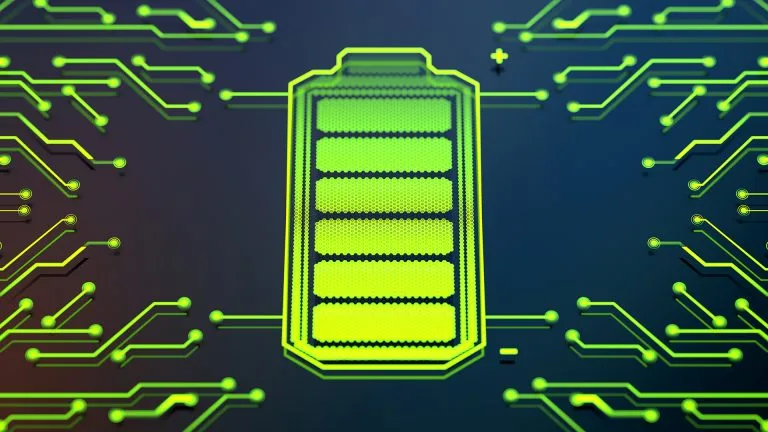Battery and charging technologies are integral components of the electronics industry, powering a wide range of devices from portable electronics to electric vehicles and renewable energy systems.
Batteries are electrochemical devices that store and release electrical energy through chemical reactions. They consist of one or more electrochemical cells, each comprising electrodes, electrolytes, and separators. When a battery is connected to an external circuit, electrons flow from the negative electrode (anode) to the positive electrode (cathode), generating electrical current. Charging reverses this process, restoring the battery's chemical energy by forcing electrons back to the anode.
Applications:
- Portable Electronics: Batteries power smartphones, laptops, tablets, wearables, and other portable devices, providing the convenience of wireless operation and mobility.
- Consumer Electronics: Battery-powered devices such as cameras, remote controls, toys, and gaming controllers rely on batteries for their operation.
- Electric Vehicles (EVs): Lithium-ion batteries power electric vehicles, including cars, buses, scooters, and bicycles, offering a clean and sustainable alternative to traditional fossil fuel-powered vehicles.
- Energy Storage Systems (ESS): Batteries store energy generated from renewable sources such as solar panels and wind turbines, enabling the efficient utilization of renewable energy and grid stabilization.
- Medical Devices: Implantable medical devices, portable diagnostic equipment, and medical monitors use batteries for reliable and uninterrupted operation.
- Industrial Equipment: Forklifts, pallet jacks, industrial robots, and other machinery in warehouses and manufacturing facilities often rely on battery power for mobility and operation.
- Aerospace and Defense: Batteries power aircraft, spacecraft, satellites, drones, and military equipment, providing essential energy storage for critical missions and applications.
Industries Served:
- Electronics Manufacturing: Battery manufacturers supply batteries and charging solutions to consumer electronics companies, OEMs (Original Equipment Manufacturers), and contract manufacturers.
- Automotive and Transportation: The electric vehicle industry relies heavily on battery technology, with automotive manufacturers investing in battery research, development, and production to meet the growing demand for electric and hybrid vehicles.
- Renewable Energy: Battery storage systems are essential components of renewable energy installations, enabling the storage and utilization of solar, wind, and hydroelectric power.
- Medical Devices and Healthcare: Battery-powered medical devices, diagnostic equipment, and patient monitoring systems are crucial for healthcare providers and medical professionals.
- Aerospace and Defense: Aerospace and defense contractors require high-performance batteries for aircraft, spacecraft, satellites, military vehicles, communication systems, and mission-critical equipment.
- Telecommunications: Telecommunications companies utilize batteries for backup power systems, ensuring uninterrupted communication during power outages or emergencies.
- Maritime and Marine: Electric propulsion systems, onboard electronics, and auxiliary power systems in marine vessels and offshore platforms rely on batteries for energy storage and power delivery.
Target Areas and Considerations:
- Energy Density and Capacity: Battery manufacturers focus on improving energy density and capacity to deliver longer runtime and higher performance in portable electronics, electric vehicles, and energy storage applications.
- Safety and Reliability: Safety is paramount in battery design and manufacturing, with rigorous testing, quality control measures, and safety features implemented to prevent thermal runaway, short circuits, and other hazards.
- Environmental Sustainability: The battery industry is increasingly focused on developing sustainable battery chemistries, recycling programs, and environmentally friendly manufacturing processes to minimize environmental impact and reduce carbon footprint.
- Fast Charging and Efficiency: Rapid advancements in charging technology aim to reduce charging times and improve charging efficiency, enhancing the user experience and promoting widespread adoption of electric vehicles and portable electronics.
- Cost Reduction: Cost reduction initiatives, economies of scale, and technological innovations drive down the cost of batteries, making electric vehicles and renewable energy storage more affordable and accessible to consumers and businesses.
- Integration with Smart Grids: Smart grid integration enables bidirectional power flow between batteries and the electrical grid, supporting demand response, peak shaving, grid stabilization, and renewable energy integration.
- Technological Innovation: Ongoing research and development efforts focus on exploring new battery chemistries, materials, and manufacturing techniques to overcome limitations, improve performance, and unlock new applications for battery technology.
Batteries and charging systems play a vital role in powering modern electronics, transportation, renewable energy, healthcare, aerospace, and defense industries. As technology continues to evolve, the demand for high-performance, safe, sustainable, and cost-effective battery solutions will drive innovation and collaboration across the battery ecosystem, contributing to a cleaner, more efficient, and electrified future.
